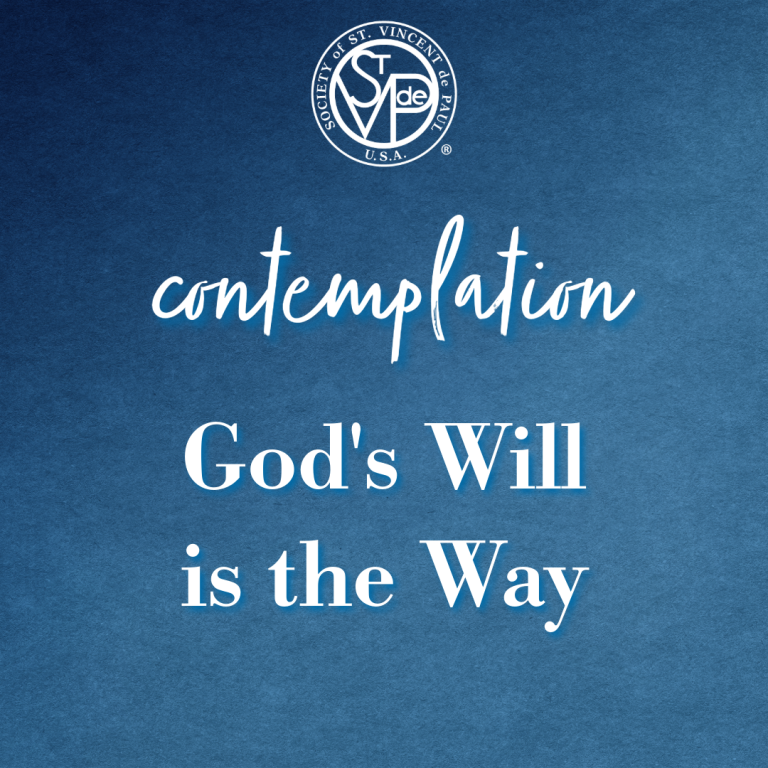By Timothy Williams, Senior Director of Formation and Leadership Development
According to our Rule, “all decisions are made by consensus” rather than by voting. [Rule, Part I, 3.10] While there may be organizations, such as the armed forces, or some businesses, where consensus-based decision-making would be impractical, presidents in our Conferences and Councils are neither bosses nor commanders; they are servants, not issuing directives, but seeking to fulfill the will of the members.
For many of us, having spent much time in organizations whose meetings are governed by Robert’s Rule, rather than the Rule of the Society, voting seems to come naturally. This habit can cause us to lose sight of how often the votes are just expressions of a consensus we have already effortlessly reached. It’s only when the issue to be decided is more complex, and there is more disagreement, that the advantages of seeking consensus become clearer.
In the commentaries to the Rule, the International Council General explains a key principle: “Is anybody cleverer or holier than the other members? We cannot be sure through whom the Holy Spirit will speak… Light will frequently arise from the one of whom we expect the least… A dominating leader will de-motivate some people, be a source of conflict and ultimately will harm the Society.”
Because none of us can know which of us is truly inspired by the Holy Spirit, we must listen to all, setting our egos aside, and understanding that our own way may not be the best way. After all, our virtue of humility reminds us that we can achieve nothing of eternal value without God’s grace. [Rule, Part I, 2.5.1] In order to arrive at consensus, then, we must seek His will, not our own, through a process of discernment.
In Vincentian discernment, we are asked to consider especially two sources of finding God’s will: people and events. By opening our minds and our hearts to each other, we hope not to decide who is right, nor to determine who “wins,” but to be open to the Holy Spirit, speaking through each of us, and in turn through all of us, united in seeking God’s will.
Consensus rarely forms around a single idea, accepted by all at the moment it is offered. It can be a lengthy process, requiring much patience by all involved. In the end, though, a decision that is supported by all, rather than fifty percent plus one, will be sustainable.
Through discernment and consensus, we are called not to unanimity, but to unity; to seeking God’s will together, and in this way, to continue “to journey together towards holiness.” [Rule, Part I, 2.2]
Contemplate
Do I seek first to impose my will in my Conference or Council, or to seek God’s will together?
Recommended Reading
Contemplación : La voluntad de Dios es el camino
Traducción de Sandra Joya
Según nuestra Regla, “todas las decisiones se toman por consenso” en lugar de por votación. (Regla. Parte 1, 3.10) Si bien pueden haber organizaciones, como las fuerzas armadas o algunas empresas donde la toma de decisiones por consenso sería impractica, los presidentes de nuestras Conferencias y Consejos, no son jefes ni comandantes; son servidores que no dan directivas, sino que buscan cumplir la voluntad de los miembros.
Para muchos de nosotros tras haber pasado mucho tiempo en organizaciones cuyas reuniones se rigen por la Regla de Robert, en lugar de la Regla de la Sociedad, votar parece ser algo natural. Este hábito puede hacernos perder de vista que, a menudo,las votaciones son sólo expresiones de un consenso que ya hemos alcanzado sin esfuerzo. Sólo cuando el asunto a decidir es más complejo y hay más desacuerdo, se hacen más evidentes las ventajas de buscar el consenso.
En los comentarios a la Regla, El Consejo General Internacional explica un principio clave; “hay alguien más inteligente o más santo que los demás miembros? No podemos estar seguros de a través de quién hablará el Espíritu Santo. ..con frecuencia, la luz surgirá de aquel de quién menos esperamos… un líder dominante desmotivara a algunos, será fuente de conflicto, y, en última instancia perjudicará a la Sociedad.”
Como nadie puede saber quién está verdaderamente inspirado por el Espíritu Santo debemos escuchar a todos dejando de lado nuestros egos y comprendiendo que nuestra propia manera de actuar puede no ser la mejor. Después de todo, nuestra virtud de la Humildad nos recuerda que no podemos lograr nada de valor eterno sin la gracia de Dios. (Regla, Parte 1. 2.5.1) Para llegar a un consenso, entonces, debemos buscar su voluntad, no la nuestra, mediante un proceso de discernimiento.
En el discernimiento vicentino, se nos pide considerar especialmente dos fuentes para encontrar la voluntad de Dios; las personas y los acontecimientos. Al abrir nuestras mentes y corazones, esperamos no decidir quién tiene razón, ni determinar quién “gana” sino estar abiertos al Espíritu Santo que habla a través de cada uno de nosotros y, a su vez, a través de todos, unidos en la búsqueda de la voluntad de Dios.
El consenso rara vez se forma en torno a una sola idea, aceptada por todos en el momento en que se presenta. Puede ser un proceso largo, que requiere mucha paciencia de todos los involucrados. Sin emvargo, al final, una decisión con el apoyo de todos, en lugar del cincuenta por ciento más uno, será sostenible.
A través del discernimiento y el consenso, estamos llamados no a la unanimidad, sino a la unidad; a buscar juntos la voluntad de Dios y, de esta manera, a continuar ” caminando juntos hacia la santidad. (Regla, Parte 1, 2 2)
Contemplar
¿Busco primero imponer mi voluntad en mi Conferencia o Consejo, o buscar juntos la voluntad de Dios?


Very relevant Reflection! Consensus decision making builds strong teams! Thanks.